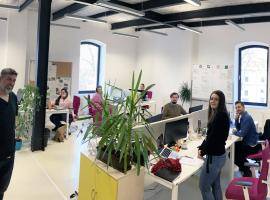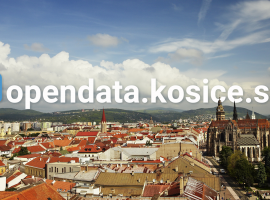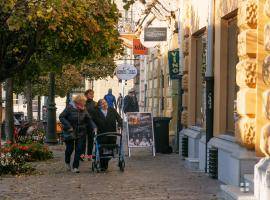Kosice 2.0 project started its journey 2 years ago in a period struck by the pandemic that limited the opportunities for collaborative action challenging the implementation trajectory of the project. The team found solutions investing in digital tools, remote work or hybrid events so to overcome those barriers and managed to run a range of activities that, even limited by the measures taken to prevent the pandemic spread, managed to bring together the stakeholder community to explore solutions with straight impact to the well-being.
Today a new crisis has hit Kosice 2.0 as the Russian invasion to Ukraine has led a big refugee wave to cross the city. Košice is the first major city next to the Ukrainian borders and since the beginning of the war around 400.000 refugees have passed through its territory. Most of them use Košice as a transit station, staying for a short period of time and using facilities set up by the national, regional or city government and NGOs. Those choose to continue their journey to other cities in Poland or Hungary or they return back to their homes as the war gets slower mainly in some of the Western or Northern areas. Mišo Hudák who represents one of the partners of Kosice 2.0, the NGO named East Coast, expert in working with communities and civil society groups, testifies:
In one moment when the war started and the city had to manage an inflow of refugees that reached 2-3.000 people per day, NGOs-partners of the project such as CIKE and East Coast channeled their capacities to develop emergency services to help the situation in close collaboration with the municipality. We created a web page for the basic needs and information of people crossing the borders; maps of services or facilities in the city they could use; registration forms; navigation maps;…what else if not war, could bring us in action!
State government has now developed two main transit stations right next to the borders to manage the inflow of people and this has helped to unleash much of the workload for Košice related to refugee support. However, around 3.000 people that have arrived from Ukraine are estimated to plan to stay in the city more permanently. Those start renting apartments where they could stay for a longer period of time while they make plans to support their personal viability. So the city has come across more complex challenges such as how to facilitate their integration to the local life or how to deal with the sudden pressure to the housing stock market that has been created. At the same time new opportunities have emerged for the service economy or for the job market in general that witnesses new expertise entering the country.




























